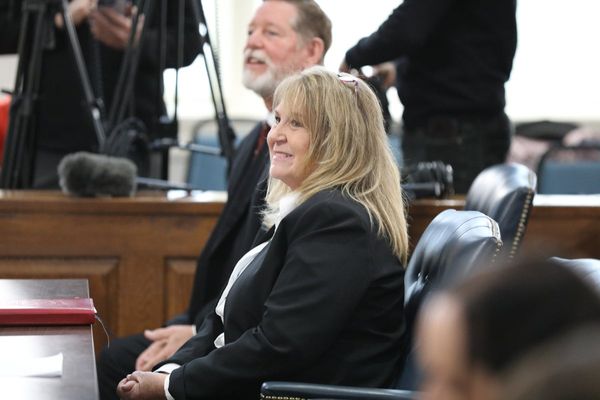SCOTLAND must be “alive” to the “threat” of Nigel Farage, the First Minister has said, after Reform UK’s strong performance in England’s local elections.
John Swinney accused Labour and the Conservatives of making a “fundamental mistake” by “cosying up” to the right-wing party.
Reform UK won its first mayor during the local elections south of the border, and came second to Labour in another two, while it also overturned a large Labour majority at a Westminster by-election.
Results are still pouring in from England’s council elections but Farage’s party already returned more than 100 councillors by Friday afternoon.
The Scottish Greens have also said Reform's success is a "klaxon warning underlining the dangers of Labour’s complacency" and underscores the urgency of Scottish independence.
Speaking to the PA news agency in Glasgow during a climate conference, Swinney accused the former Ukip leader of giving voters “false hope”.
“The results coming in from England demonstrate that Farage is a real political threat,” he said, “and the Labour and Conservative parties have made fundamental mistakes in dealing with Farage because they have cosied up to them, rather than confronting them.
“The Scottish National Party has every intention of confronting the politics of Farage because they are politics that are populist, they are deceptive, they give people false hope, and they blame others, and the SNP will confront those politics.”

Asked if Reform UK’s victories could be replicated at next year’s Holyrood elections, the SNP leader said: “We’ve got to be alive to the political threat from Farage and the answer to Farage is to confront him – it’s not to cosy up to him.
“The Labour Party and the Conservatives have cosied up to Farage, and look where it’s got them in England.
“Well, I have absolutely no intention of cosying up to Farage.
“I’ll give the political leadership to the SNP and to Scotland that will confront the politics of Farage, because his politics are divisive, they provide people with false hopes, and they are fundamentally damaging to our society and our democratic values, and they have to be confronted.”
Recent polling has suggested that Reform UK – which does not currently have a Scottish leader – could return more than 10 MSPs to the Scottish Parliament next year.
A Survation poll on Friday put support for Reform UK on 14% for the constituency vote at Holyrood and 12% for the regional list. The Tories stood at 13% and 16% respectively.
The survey, carried out on behalf of Diffley Partnership, found 36% of people are planning to vote for Swinney’s party on the constituency section of the ballot, with 28% saying they will support the SNP on the regional list section of the vote.
Support for Anas Sarwar’s Scottish Labour was at 22% on both the constituency and the regional list ballot, according to the poll.
The Scottish Greens highlighted some polls have pointed to the prospect of a Reform UK Government without the party having a single Scottish MP.
Co-leader Patrick Harvie said: “The last thing we need is the dangerous populism of a Reform Party that would gladly decimate public services, trash our environment and only act in the interests of its wealthy friends and donors.
"There is no doubt that their rise has also been fuelled by a failing Labour government that promised change but is choosing to cut even deeper than the Tories.
“People shouldn’t have to choose between a Labour government that is punishing disabled people and a Reform Party that stands for scapegoating and conspiracy theories. Our communities deserve so much better than that.
“With the powers of a normal independent country we could take a fundamentally different path, deliver the real transformative change and build the fairer and greener future that is so badly needed.”
Last week, Swinney chaired a summit to battle the rise of the far-right, which he said included Reform UK.
In response, Reform UK – which was not invited – described the SNP leader as a “democracy denier” and accused him of being scared of the party’s popularity.
Labour, the Conservatives and Reform UK have been approached for comment.







